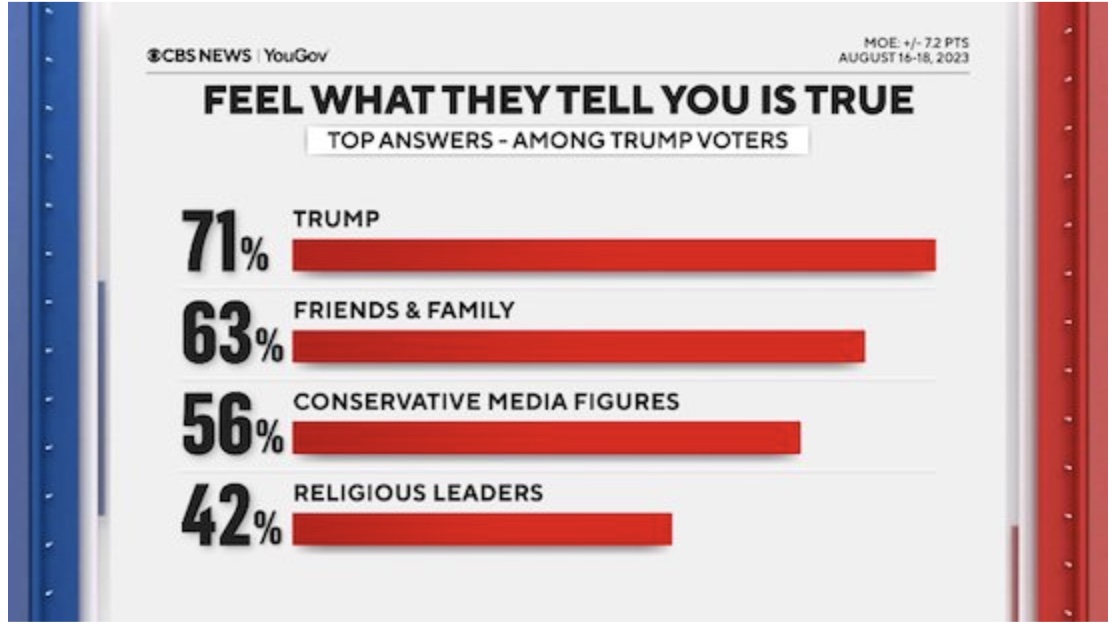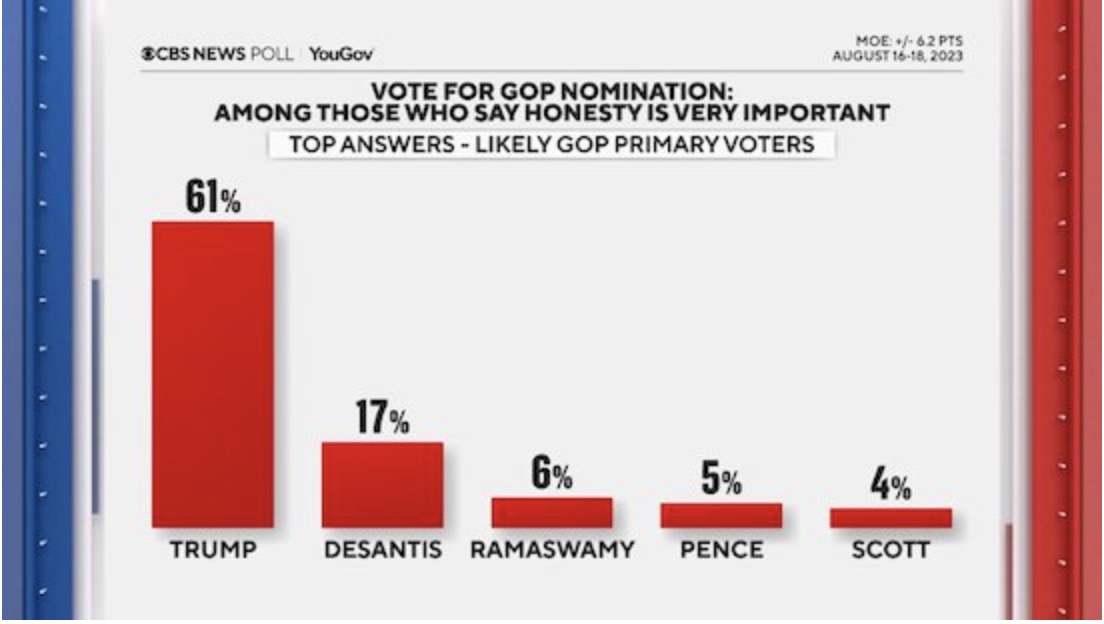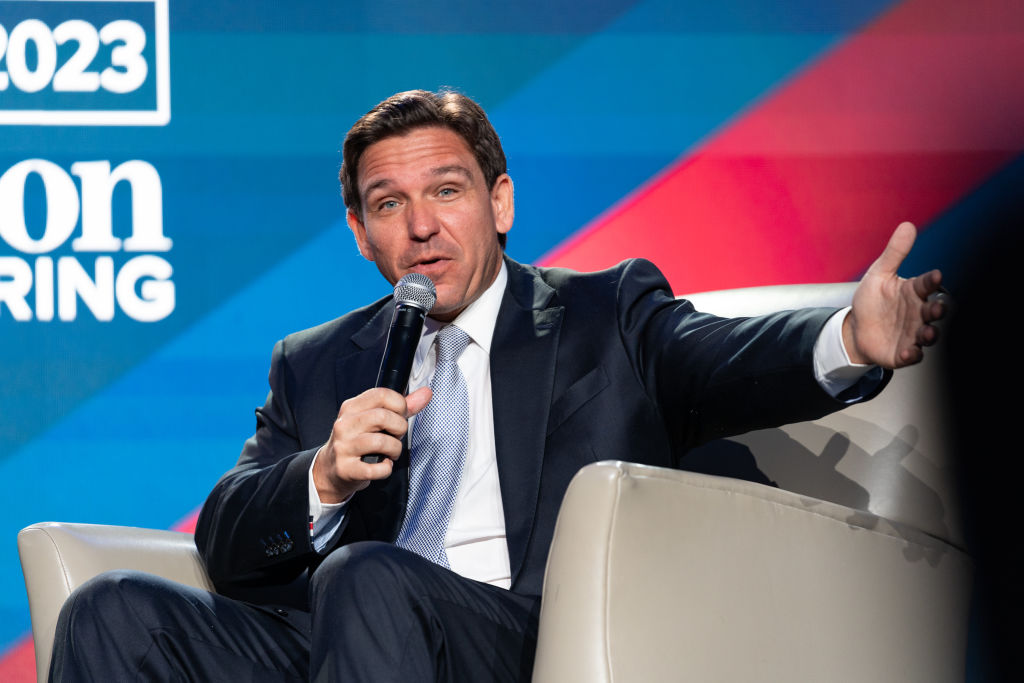Ted Cruz’s critics will tell you that the man is incapable of telling the truth. Nonsense.
I know for a fact that he told the truth once. Once.
Don’t believe me? See for yourself.
That was recorded on May 3, 2016, the day Donald Trump crushed him in the Indiana primary to wrap up the Republican nomination. Cruz is an unnervingly disciplined politician, a man who gives the impression that his every utterance since he learned to speak has been calculated to get him closer to the presidency. But he’s also a human being, sort of, and on May 3, 2016, he had reached the end of his tether. His discipline cracked.
Can you blame him?
He was a working-class kid who studied hard. He went to the right schools. He slaved away as a lawyer for Republican campaigns and administrations. He remade himself as a populist to capitalize on Tea Party fever and got elected to the Senate in America’s second-largest state at age 41. He ran for the White House and saw his polls grow steadily during the campaign as one conservative rival after another faded and quit. Every overachieving child has a pipe dream of being president someday; Cruz’s dream wasn’t just coming true, it had proceeded like clockwork. He had done everything right.
Now here he was, about to have that clockwork smashed to bits by a game show host with a squirrel on his head who seemed to have run for office on a lark, who made no serious pretense about being a conservative, who felt no compunction about insulting Cruz’s wife and his father in shockingly personal terms, and who paid no price with voters for any of those deficiencies. The indignity of losing to such a creature proved too heavy a load psychologically for even Ted Cruz’s steely discipline to bear. On the eve of defeat, he broke and told the truth about Trump. Once.
I wonder if we’re approaching the breaking point with Ron DeSantis.
DeSantis is another working-class kid who studied hard and went to the right schools. He served as a lawyer for the Navy, not in Republican campaigns, but he too had precocious success in politics—a congressman at age 34, governor of America’s third-largest state at age 40, a top-tier presidential candidate at age 44. Like Cruz, he remade himself opportunistically to capitalize on ideological trends, shifting from a Tea Party conservative before Trump took over the party to a culture-war authoritarian afterward.
He did everything right. And now here he is, getting smoked in a primary by the guy with the squirrel on his head more decisively than Cruz was.
The odds of DeSantis having a public outburst of candor about Trump and the MAGA movement are growing by the hour. In fact, to hear Team Trump tell it, it’s already happened.
On Friday the site Florida Standard published a 20-minute interview with the governor of which 90 seconds caught the attention of Trump acolytes. Watch.
“Listless vessels” is an odd but surprisingly common phrase in DeSantis’ campaign. Semafor reporter Dave Weigel noted in early June that the term had begun to creep into Team Ron’s rhetoric on the trail, with the governor using it to describe students who aren’t educated about the Constitution and his wife using it to refer to Beltway politicians. It’s not some generic insult. It has a specific meaning, denoting people who are easily swayed because they’re not anchored by principle.
No matter. The Trump talking points came together quickly: “Listless vessels” is “Deplorables” 2.0.
“Looks like Ron DeSanctimonious just had his ‘Basket of Deplorables’ moment. Not good!” tweeted Trump henchman Jason Miller. “DeSantis goes full-blown Hillary and call[s] MAGA supporters ‘Listless Vessels,’” spokesman Steven Cheung added. The campaign made it official:

Trump himself would have pressed the point aggressively onstage if he were participating in this Wednesday’s primary debate, no doubt. As it is, expect his stalking horse, Vivek Ramaswamy, to follow the script on his behalf.
All of this amounts to an awful lot of agita toward Ron DeSantis for making a point as simple as, “We can’t be a cult.”
Zaid Jilani transcribed his answer, amazed that so many on social media had taken issue with it. It’s even more anodyne in print than it was coming out of DeSantis’ mouth.
“What is the counterargument, that a political party should revolve around one personality?” asked Jilani.
Do you really want the answer to that, Zaid?
To say that the Trump campaign is acting in bad faith here is to say that water is wet. Their heavy breathing notwithstanding, DeSantis didn’t call MAGA voters “deplorable.” How could he, when he’s running to Trump’s deplorable right on issues like vaccines and gay rights? The “listless vessels” comment wasn’t even aimed at voters, it appears; it was aimed at Trump cronies in Congress like Elise Stefanik who reliably cast centrist votes yet enjoy more populist credibility than stalwart conservatives like Chip Roy because of their willingness to slavishly serve Trump.
If you want to stretch and believe that DeSantis was describing voters, his point as I understand it is that populists will become listless vessels whose movement won’t endure if they stand for nothing grander than “whatever Trump wants.” They need a real agenda—an anchoring in principle—and only one candidate is offering that. They have an opportunity now to choose.
It’s … interesting that Trump World didn’t dispute the substance of any of that. They could have taken umbrage at the suggestion that Trump isn’t rooted in principle or that he wants Republican voters to eagerly swallow “whatever happens to come down the pike on Truth Social every morning.” But all of that is true. So instead they zeroed in on the alleged insult to Trump supporters and distorted it beyond recognition.
Which, demagogic though it may be, makes strategic sense.
DeSantis, after all, has spent the entire campaign trying to lure MAGA voters away from Trump. That strategy has failed substantially but not totally, as he remains the second choice of most Republicans (for now) and got as high as 30 percent in national polls in March. Only he and Ramaswamy have the populist chops to make inroads with Trump’s base, realistically, and the stalking horse will back off if it ever comes to that. DeSantis, even in his weakened state, remains the only real threat.
So, logically enough, Trump’s campaign is seizing the opportunity to attack his populist bona fides by framing him as a Hillary-esque establishmentarian brimming with elite contempt for the common man. It’s a nifty way to put him on the defensive with the debate bearing down, and it’s frankly his team’s best chance to date to drive a wedge between DeSantis and the MAGA right. Populism is pure us-and-them politics, victims versus victimizers; if the governor ends up getting moved from the “us” column into the “them” column, he’s well and truly dead.
And he knows it. When Team Ron piped up this weekend to rebut the criticism, it wasn’t the Trump campaign they complained about. It was “the dishonest media.”
DeSantis surrogate Ken Cuccinelli also complained about the media when he appeared on CNN this weekend, objecting to the network’s edit of the governor’s soundbite. DeSantis wasn’t talking about Trump supporters, Cuccinelli insisted, he was talking about members of Congress who oppose the policy interests of the American right yet purchase goodwill from them on the cheap by endorsing Trump. (DeSantis made the same point in an interview with Fox News on Monday.) By blaming the left-wing media and the RINOs in D.C.—two sinister mainstays of the “them” column—for trying to turn Trump voters against DeSantis, Cuccinelli was trying to maneuver his candidate back into the “us” column.
It’s all very stupid because populist politics are even stupider than conventional politics but it does have me thinking. DeSantis’ “listless vessels” comment might not have been aimed at Trump voters, but should it have been?
To rephrase: Would it be to the GOP’s long-term benefit if prominent Republicans began acknowledging publicly what’s been plain for years, that a meaningful fraction of the party’s base has become a cult?
If God exists, He must have a sense of humor. On Sunday, as Trump fans were fulminating over DeSantis’ alleged slander, a CBS poll of the Republican primary revealed some results that were, well, deplorable.


One could challenge the methodology of both of those questions. For instance, voters who regard honesty as “very important” might not (and almost certainly do not) regard it as the most important issue. They’re not supporting Trump because they view him as honest, perhaps, but in spite of it. And comparing Trump to “friends & family” or “religious leaders” is an apples-to-oranges analogy since he’s a person and the others are vague groups that can be defined any which way. Someone who views him as more honest than “religious leaders” might nonetheless view him as less truthful than their own pastor.
If that makes you feel better about the data, super. As for me, seeing Donald Trump scoring well on any metric having to do with honesty in 2023 feels like moral grounds for a meteor strike. It’s not a result one can come to based on empirical reality. It can only be arrived at as a matter of blind faith.
Or, as Joe Scarborough said while running through the CBS numbers on his show on Monday: It’s a cult.
This data from a new poll of Iowa feels more than a little culty as well:
When Zaid Jilani wonders whether Republicans want their party to revolve around a single personality, he’s asking a question to which the answer has been clear for years. Many Republicans do want that. Not all, but more than enough to win a presidential primary, it seems.
Should more party leaders be candid about it?
It’s strange yet true that Trump’s most outspoken critics in the GOP seldom tiptoe toward this subject. The Cheneys, Romneys, and Christies of the world will talk all day long about the faults of the man himself, but their politician’s instinct for never, ever insulting voters keeps them dependably away from criticizing the cultishness of his support. The closest they get is when the subject of the primary comes up and they blandly concede that “30 percent of the party will be with him no matter what.”
The thing is, the scope of “no matter what” keeps expanding. It was already frighteningly large in 2016, if only hypothetically. Post-insurrection, post-impeachment, post-indictment, “no matter what” is literally true. They’re with him. No matter what.
That’s a desperately sick, immoral (deplorable, even!) impulse in a political movement. If it’s not already fascist, that’s only because Trump hasn’t made that specific ask yet. Are “normal” Republican voters aware of how abnormal these listless vessels in Trump’s core base have become and what they’re making common cause with by continuing to support this party?
I’m not sure they are. Many “normal” Republican voters don’t follow politics regularly. To the extent they do, the Cheneys, Romneys, and Christies remain focused on Trump’s personal foibles, not on the political culture his fans have built around him. Some of the former president’s most prominent antagonists continue to say they’ll vote for him for president again next fall, in fact.
Casual Republican voters know about January 6, of course. But if they’re getting signals from otherwise trustworthy conservatives like Bill Barr and Brian Kemp and Mitch McConnell that being governed by Trump remains preferable to being governed by Joe Biden, insurrection or no insurrection, why would they have any inkling that his base remains something cultish and dangerous? The threat has passed, they might wrongly but understandably conclude.
Perhaps it’s time for GOP leaders to do more to make the fish aware of the water they’re swimming in.
Ron DeSantis won’t do it. He’ll continue to dream about winning the presidency someday if his current campaign implodes, just as Ted Cruz surely still does. Even when Cruz’s discipline cracked on the day of the Indiana primary seven years ago, he had the wherewithal not to wreck his future in the party by criticizing Trump’s voters. He and DeSantis crave positions of leadership in the Trump-era GOP, an impulse that’s plenty sick and immoral in its own right, and there’s no way to make that happen once you’ve made an overt enemy of Trump’s voters. He’ll bite his tongue.
But why not Liz Cheney, who’s out of politics? Why not Mitt Romney, who (I suspect) probably isn’t going to run for a second term? Why not Chris Christie, who must know that Trump’s voters are lost to him already just as surely as the Republican nomination is?
No one wants to be thought of as belonging to a cult. Popularizing the understanding of Trump’s base in those terms might not persuade avid members to leave it but could give persuadable Republicans pause about what they might be enabling by nominating him again. What seems like pedestrian political blather might sound different to an ear that’s been alerted to cultish elements in Trump’s support. The task of modern right-wing media is to make sure Republican voters never have cause for inspection about what the party has become; a presidential primary seems like a fine time for that introspection to begin, if long overdue.
Ron DeSantis is too self-centered in his ambition to force the issue. Not every Republican is.
Raising awareness on the right about the cult might not prevent Trump’s nomination but if it alarms enough conservatives it might prevent a second term for him as president. And it will be good for the party long term: The first step to ending the hostage crisis within the GOP is to make sure rational conservative voters understand the nature of the crisis. It won’t resolve until they come to realize that empowering a cult by winning is worse for them and for the country than rebuilding after defeat. Make them realize it.







Please note that we at The Dispatch hold ourselves, our work, and our commenters to a higher standard than other places on the internet. We welcome comments that foster genuine debate or discussion—including comments critical of us or our work—but responses that include ad hominem attacks on fellow Dispatch members or are intended to stoke fear and anger may be moderated.
With your membership, you only have the ability to comment on The Morning Dispatch articles. Consider upgrading to join the conversation everywhere.